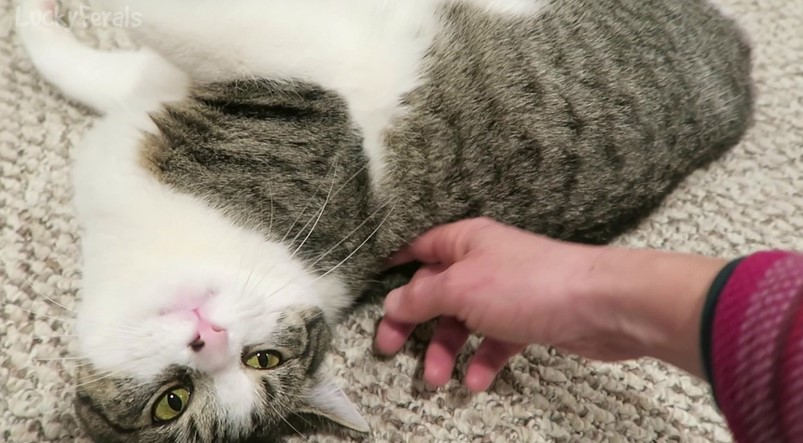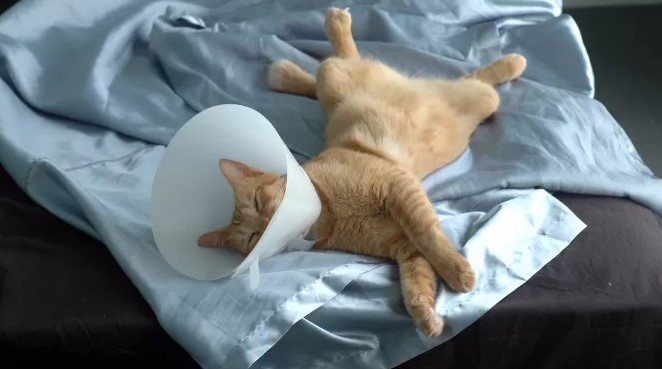When Should I Have My Cat Neutered?
If you’re planning to get your cat neutered, it is imperative to understand what to expect. Here are a few things to keep in mind: When Should It Happen?, What to Expect Post-Neutering, and Post-Neutering Care. Also, learn how to feed your cat after the procedure.
Cat neutering is the surgical removal of a cat’s reproductive organs, often referred to as “spaying” if performed in females and “neutering” if performed in males. This prevents them from reproducing. At the same time, it doesn’t change their personality or make them fat that’s a myth! While every neutered cat is different, cats who have been spayed or neutered aren’t likely to run away, spray urine in your home, yowl or fight with other cats.

Cat neutered
Having your cat neutered is a vital part of caring for your feline friend. The process is simple and takes only a few minutes. The procedure is also known as castration or fixing. While there are different terms used for neutering and spaying, these procedures are both performed to remove the reproductive organs of animals.
Your cat will likely experience some pain and discomfort after neutering, but this is to be expected. Your vet will give your cat a pain medication that should last a few days. If your cat still feels uncomfortable after the procedure, contact your veterinarian immediately. Avoid giving your cat pain medications that are meant for humans. These can be harmful to your cat, and could even result in serious complications or even death.
Neutering a cat helps prevent unwanted pregnancies. It also reduces the risk of infection from FIV and other illnesses. It also reduces the risk of bite wounds and abscesses from fighting. Cats that have been neutered can also be less likely to become infected with diseases such as FeLV, which causes cancer in cats.
Furthermore, neutering a cat will prevent the animal from producing unwanted litters and killing kittens needlessly.
When It Should Happen
Spaying and neutering your cat can be a good idea for a number of reasons. This medical procedure prevents your cat from getting pregnant and ensures that it will never become a feline litter- mate. The procedure involves the removal of both sex organs, which includes the testicles in a male cat and the uterus and ovaries in a female cat. This procedure is recommended for cats that have been stray or feral, or if you’re planning on adopting one.
The first and most obvious benefit of neutering your cat is to prevent unwanted pregnancy. This procedure also eliminates the risk of mammary cancer in your cat. Unwanted pregnancy is an emotional and financial burden. It can also make it difficult to find a home for the kittens. In addition, female cats can become very vocal when in season, particularly during the night. This can be quite distracting and attract unwanted suitors to your yard.
Neutering your cat also reduces the risk of feline immunodeficiency virus (FIV), a disease that can lead to pregnancy and can be fatal for female cats. Furthermore, neutering will decrease your cat’s desire to roam, which will cut down on the risk of getting injured. Additionally, spaying a cat can reduce the risk of developing breast cancer, as well as a number of other conditions.
Will My Cat Be Different?
Neutered cats have fewer problems exhibiting aggression and more subdued behavior. Before the procedure, intact male cats often exhibit excessive levels of testosterone in their blood, which promotes increased muscle mass and activity. However, these hormones are also associated with aggression and create a strong urge to mate. After neutering, the hormone testosterone is gradually decreased. However, this does not mean that a neutered cat will suddenly change its behavior.
A neutered cat is much less territorial and aggressive toward other animals and is also less likely to fight with them. However, some cats may retain sexual urges even after being neutered. This is because some neutered male cats have residual levels of male reproductive hormones in their body. However, these hormones should gradually disappear over several weeks, eliminating the sex drive completely.
Although neutering does not prevent cats from spraying, neutering does decrease the amount of urine a cat produces. Although the smell is less intense, the cat will still spray sometimes, especially if it is stressed or nervous. Neutered cats also will not become fat and lazy, and they won’t exercise as much. This is because they won’t be roaming, mating, and fighting as much.

Feeding Cats Post-Neutering
There are many benefits to neutering your cat, including fewer unwanted litters and decreased parental stress. The process is done by a veterinarian and renders your cat sterile. Female cats are called spayed and male cats are called neutered. Afterward, the cat needs to adjust its feeding schedule.
Neutered cats gain weight more rapidly. They gain fat mass and body weight within eight to twelve weeks. The gain in weight is likely to continue through adulthood. This is because neutering typically takes place during the first seven months of life. Although the initial gain is likely unnoticeable, it may signal a shift in growth and development.
The amount of food your cat eats after neutering will depend on its size. Female cats are smaller, so their daily food intake is less. However, male cats may need slightly more calories than female cats. This can result in weight gain and medical complications. To avoid this, feed your cat a special diet that contains the right balance of calories and nutrients.
Cats are usually spayed or neutered between four and six months of age. The surgery is generally safe and recovery times short. It’s a common operation, so there’s lots of information out there on it. Ask your vet any questions you have and be sure to find out what they’re doing before they operate on your cat.
